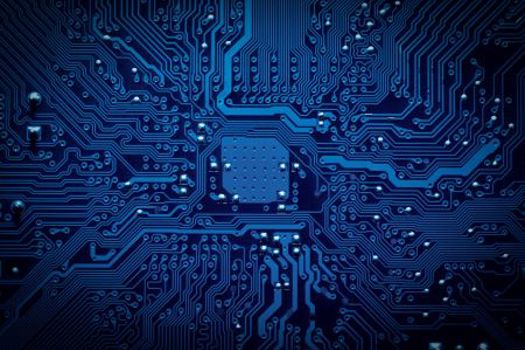As artificial intelligence continues to reshape the tech landscape, companies are increasingly focused on creating sustainable solutions for datacenters. Arm, a leader in semiconductor technology, has recently emphasized its commitment to this goal through its Arm Total Design ecosystem. Launched just a year ago, this initiative aims to address the pressing challenges faced by datacenters in balancing power demands, the complexities of chip development, and sustainability. With a growing network of partners, Arm is positioning itself at the forefront of sustainable AI innovation.
The Challenge of AI Workloads
Datacenters today face a multitude of challenges, particularly as AI workloads grow in both complexity and volume. The increasing demand for processing power comes at a time when energy efficiency and sustainability have never been more crucial. Arm recognizes that to keep pace with the evolving landscape, it must innovate while also reducing the environmental impact of its technologies.
According to Eddie Ramirez, Vice President of Go-to-Market for Arm’s Infrastructure Line of Business, the Arm Total Design initiative was launched to foster collaboration among industry players. This collaborative approach is intended to accelerate the development of custom silicon that meets the future demands of AI-centric datacenters.
Growth of the Arm Total Design Ecosystem
Since its inception, the Arm Total Design ecosystem has expanded rapidly, doubling in size and now encompassing more than 30 participating companies. This diverse coalition includes key players like Alcor Micro, Egis, PUF Security, and SemiFive, each contributing unique expertise and capabilities. Together, they are working to create a multivendor chiplet and System on Chip (SoC) ecosystem that can effectively tackle the needs of AI workloads.
One of the standout features of this ecosystem is its focus on Arm Compute Subsystems (CSS). These subsystems provide the foundational technology that enables partners to develop advanced AI solutions tailored for specific applications. This integration of various competencies—ranging from design to foundry manufacturing—facilitates the rapid development and deployment of cutting-edge AI hardware.
Real-World Applications
The collaboration fostered by Arm Total Design has already led to significant advancements in AI computing solutions. A prime example of this is the recent partnership between Arm, Samsung Foundry, ADTechnology, and Rebellions to develop a new AI CPU chiplet platform. This platform is designed specifically for cloud, high-performance computing (HPC), and AI/machine learning (ML) training and inference workloads.
By leveraging the Neoverse CSS V3-powered compute chiplet from ADTechnology, combined with Rebellions’ Rebel AI accelerator and Samsung’s 2nm Gate-All-Around (GAA) process technology, this platform aims to deliver exceptional performance and power efficiency. Arm claims that it offers a two to three times efficiency advantage for Generative AI workloads, a promising development for industries reliant on AI technologies.
Taejoong Song, head of foundry business development at Samsung Electronics, highlighted the importance of these advancements, stating that the new platform is designed to meet the stringent requirements of AI and HPC designs. The collaboration between Arm and Samsung exemplifies the potential of the Total Design ecosystem to innovate sustainably.
Driving Sustainable AI Infrastructure
The Arm Total Design initiative aims to establish a new standard for AI infrastructure that emphasizes sustainability. By facilitating the creation of custom silicon tailored to specific applications, the initiative reduces barriers to entry for companies looking to develop AI solutions. This diversity in chiplet solutions spans from cloud to edge applications, demonstrating the flexibility of Arm’s ecosystem.
In recent announcements, several partners within the ecosystem have revealed their plans to build chiplets powered by CSS for AI/ML training and inference. Alcor Micro is developing its own chiplet designed for these specific use cases, while Alphawave is working on an advanced compute chiplet that caters to a range of applications, including AI/ML, HPC, and even future 5G/6G technologies.
Ensuring Software Compatibility
A critical aspect of Arm’s strategy is ensuring that the software ecosystem remains compatible and ready for the diverse set of silicon solutions emerging from the Total Design initiative. For over 30 years, Arm has prioritized making its software ecosystem user-friendly, a commitment that continues with the Total Design program.
This emphasis on software readiness means that the chiplets being developed can seamlessly integrate with existing operating systems and frameworks. All major frameworks currently run on Arm architecture, making it easier for developers to adopt these technologies without facing significant barriers.
Recent advancements, such as the introduction of Arm Kleidi technology, demonstrate this commitment. This technology optimizes CPU-based inference for open-source projects like PyTorch and Llama.cpp, ensuring that partners can build CSS-based chiplets for edge AI computing without relying heavily on specialized accelerators.
Looking Ahead
As we move deeper into the era of AI, the importance of sustainability in technology cannot be overstated. Arm’s Total Design ecosystem stands as a testament to the company’s dedication to fostering innovation while addressing the environmental challenges posed by modern datacenters. By creating a collaborative environment that encourages the development of advanced silicon solutions, Arm is not just responding to current demands but actively shaping the future of AI infrastructure.
The continued growth of the Total Design ecosystem highlights the importance of partnerships in driving innovation. As more companies join this initiative, the potential for groundbreaking solutions in AI computing will only expand. The focus on sustainability, efficiency, and high performance will be essential as the industry navigates the complexities of AI workloads.
Conclusion
Arm’s Total Design initiative represents a significant step forward in creating sustainable AI solutions for datacenters. By harnessing the power of collaboration, the ecosystem aims to accelerate the development of innovative silicon solutions that meet the growing demands of AI while minimizing environmental impact. With a diverse array of partners and a strong commitment to software readiness, Arm is well-positioned to lead the charge toward a more sustainable future in AI infrastructure. As the landscape continues to evolve, the impact of these developments will likely resonate across various industries, marking a new era in computing technology.

